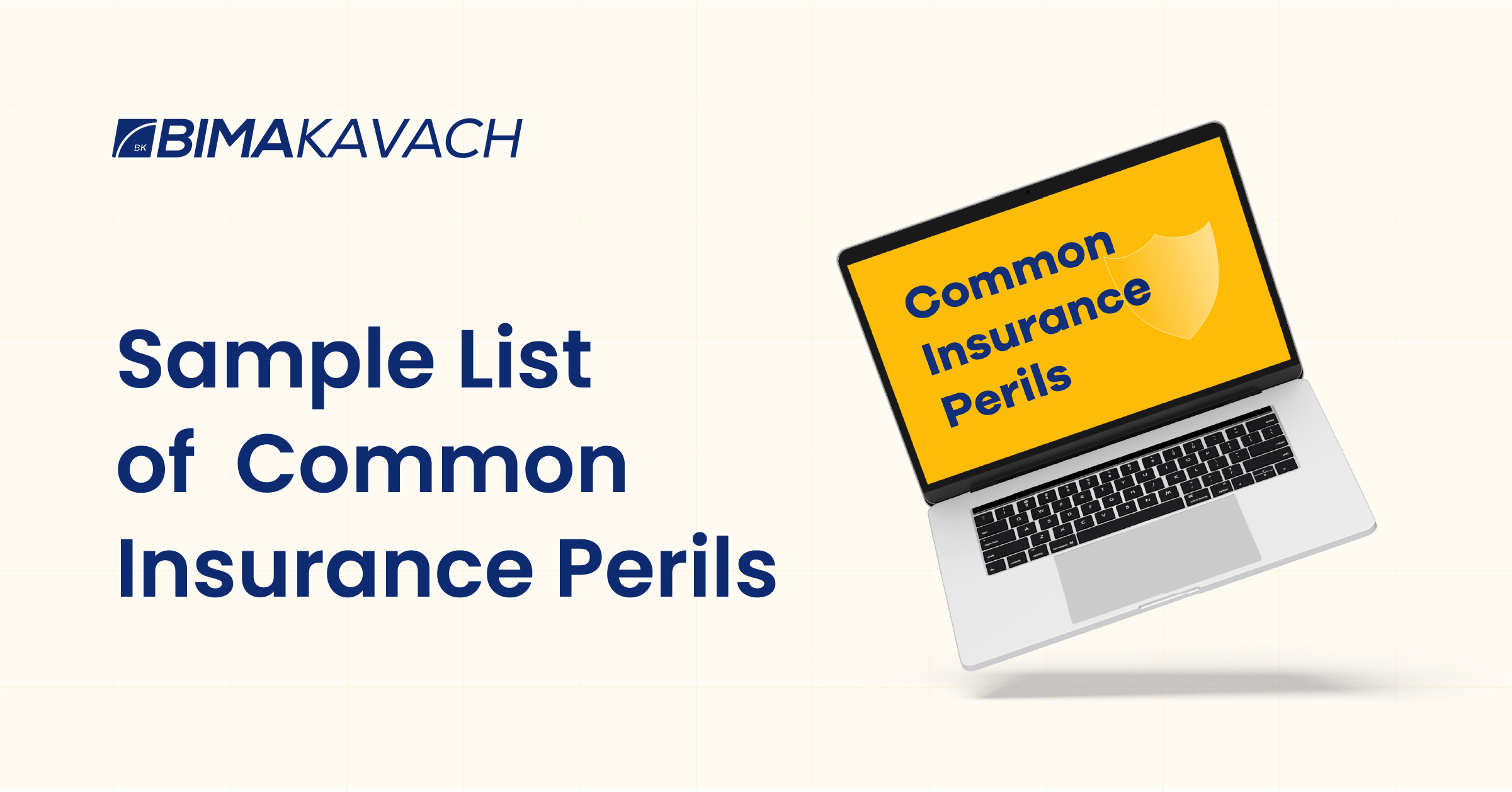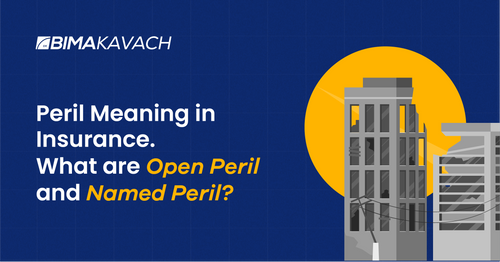Insurance is a vital component of our lives, offering financial protection and peace of mind in times of uncertainty. However, navigating the intricacies of insurance policies can often be a daunting task. Agree with us on this? Are you tired of feeling lost and confused when it comes to deciphering insurance jargon? Well, you are not alone!
Among the many terms and concepts used in insurance, "peril" stands as a fundamental element in understanding the coverage offered by an insurance policy. What exactly does it mean, and what risks are covered by your insurance policy? In this blog post, we will dive into the meaning of peril in insurance and explain all the different types of risks that can be covered. Understanding the nature of perils and their coverage options is crucial for policyholders to make informed decisions regarding their insurance needs. So, join us as we unravel the world of perils in insurance, unraveling the nuances between open peril and named peril coverage, and discover how they can impact your insurance experience.
Let’s start with the basics first!
What is peril in insurance?
Peril is a term used in insurance to describe the type of event, circumstance, or hazard that leads to the loss or destruction of your property or belongings. In other words, it is the specific event and the cause of loss covered by an insurance policy. Insurers define perils in their policy documents to outline the specific circumstances under which they will provide coverage. Perils can vary depending on the type of insurance policy. A few examples of perils commonly covered by insurance policies include fire, theft, vandalism, and so on.
Get Free Quote in Minutes
Covered vs Uncovered Peril
It is important to distinguish between covered perils. Covered and uncovered perils in insurance refer to the specific events or risks that are included or excluded from coverage under an insurance policy.
Covered perils are the events or risks that are included and protected by an insurance policy. These perils are listed in the policy documents or contract, and any losses or damages resulting from these perils are eligible for compensation or reimbursement. For example, if a property insurance policy covers perils like fire, theft, and storm damage, any losses caused by these events would be covered by the policy.
Uncovered perils are events or risks that are explicitly excluded from coverage by an insurance policy. These exclusions are mentioned in the policy documents, and losses or damages resulting from these perils will not be covered by the insurance company. Uncovered perils can vary depending on the specific policy and insurance type. For instance, a property insurance policy might exclude perils like earthquakes, floods, or acts of war from coverage. If any damage occurs due to these excluded perils, the policyholder would not receive compensation from the insurance company.
Named Peril and Open Peril
Also known as specified perils, named perils insurance policies explicitly list the specific perils or risks that are covered by the policy. Only the perils specifically mentioned in the policy documents are eligible for compensation in the event of loss or damage. If a peril is not listed, it is generally not covered. Common named perils in property insurance might include fire, theft, vandalism, and windstorm. The burden of proof usually falls on the policyholder to demonstrate that the loss resulted from one of the named perils. For example, suppose you are covered against 16 perils listed in your insurance policy. Now, when filing a claim, it is your responsibility to prove that the damage or loss was caused by one of the 16 named perils in your policy.
Also referred to as all-risk or comprehensive coverage, open perils insurance policies provide coverage for all perils or risks except those specifically excluded. Instead of listing the covered perils, these policies specify the perils that are not covered. Examples of commonly excluded perils in property insurance might include earthquakes, floods, intentional acts, or wear and tear. Under open peril coverage, the burden of proof generally rests with the insurance company to show that the loss or damage resulted from an excluded peril.

Sample list of common insurance perils
- Fire/lightning
- Explosion
- Windstorm/hail
- Riot/civil commotion
- Vehicles
- Aircraft
- Smoke
- Theft
- Vandalism/malicious mischief
- Volcanic eruption
- Weight of ice, snow, sleet
- Falling objects
- Accidental discharge/overflow of water or steam
- Freezing
- Sudden tearing apart, cracking, or bulging (in water/air systems)
- Damage from electrical current
Sample list of excluded insurance perils
Insurance policies always name specific exclusions to a policy — perils that are not covered. Things that are not covered vary by insurer. But, most of the following exclusions are common across all insurers.
- War
- Nuclear hazard
- Governmental hazard
- Intentional loss
- Ordinance/law
- Earth movement
- Water (flood, sewer backup)
- Power failure
- Neglect
However, you can protect yourself against some of these perils by purchasing a rider, endorsement, or supplementary policy.
The footnote:
Peril is an important concept to understand in insurance. By carefully reviewing policy documents, individuals and businesses can identify the covered perils and any exclusions that may affect their insurance coverage. This knowledge allows them to assess their insurance needs accurately and consider additional coverage options for perils not covered by their existing policy.
Knowing what perils your insurance covers will help you ensure that any claims you make are valid and will give you peace of mind knowing that if something does happen then the financial consequences won’t leave you high and dry. To ensure clarity and peace of mind, it is advisable to consult with insurance professionals or agents who can provide guidance on the nuances of perils and help tailor insurance policies to specific needs. For more information related to any topics related to business and insurance, you may contact BimaKavach. Here, you can also get the best recommendation for any insurance product in just 5 minutes.

